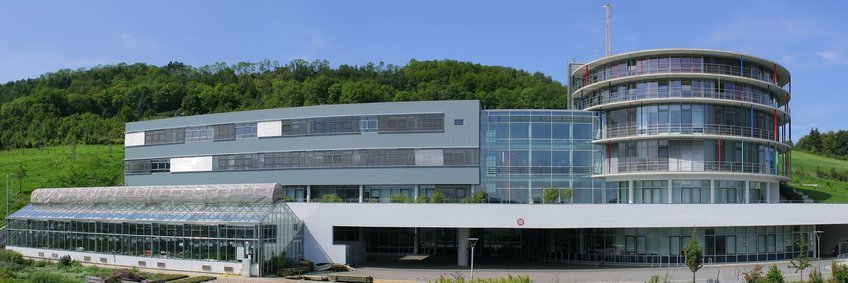
Scientific Profile
Exploring the Earth System
Our research is dedicated to the study of global biogeochemical cycles and their long-term interactions with the biosphere, the atmosphere, the geosphere and the entire climate system. We aim to better understand how living organisms - including humans - exchange basic resources such as water, carbon, nutrients, and energy with their environment and how this affects ecosystems and climate at regional to global scales.
Biogeochemistry
Biogeochemistry is the science of the Earth's metabolism. Elements essential to life such as carbon, nitrogen, oxygen and phosphorus are constantly undergoing biological, chemical and physical transformations as they are exchanged between different parts of the Earth, the lithosphere, hydrosphere, biosphere and atmosphere. The "biogeochemical cycles" quantitatively describe the distribution and exchange of elements between these components of the Earth system.
The Biogeochemical Cycles
The biogeochemical cycles interact in complex ways with the Earth's climate. They control the fluctuations in atmospheric concentrations of greenhouse gases such as carbon dioxide (CO2), water vapour (H2O), methane (CH4) and nitrous oxide (N2O), which in turn influence the radiation balance of the atmosphere. Large-scale changes in land vegetation also affect the physical climate through their influence on the surface energy balance.
The Carbon Cycle
Carbon occurs, e.g., as green-house gases carbon dioxide and methane in the atmosphere, as organic molecules in organisms, soils and sediments, and in dissolved inorganic and organic forms in surface waters and oceans. Processes in which carbon is exchanged between organic and gaseous forms include photosynthesis, respiration and decomposition, while soluble inorganic forms can be exchanged with solid carbonate minerals. Most processes in which carbon is converted from one form to another are mediated by living organisms, and the rate depends on environmental conditions.
Our Focus
The Max Planck Institute for Biogeochemistry aims to better understand the role of terrestrial ecosystems in global biogeochemical cycles.
We focus on observing and diagnosing the current rapid changes of such element cycles in the Earth System, specifically the connections among land ecosystems, the atmosphere and climate. We focus on land because it is where humans live and obtain the majority of their resources, and because the role of land is among the largest uncertainties in global budgets of several of the major biogeochemical elements.
Activities associated with increasing human demand for energy, water and food have fundamentally altered global biogeochemical cycles, causing a rapid increase in greenhouse gases in the atmosphere and thus changing the Earth's climate. Intensified land use affects the diversity and geographical distribution of living organisms on Earth. Understanding the implications of these changes for the future state of the Earth system is a major scientific challenge that is urgently needed in view of the future resource requirements of ecosystems to sustain growing populations and human living standards.
The processes that control the interactions between climate, land surface and biogeochemistry span many orders of magnitude on a spatial scale: from the activity of molecules to changes in vegetation visible from space. To get a handle on all the complex interactions and make large scale leaps, we rely on conceptual and computational models and use machine learning for data analysis.
For our research, we conduct laboratory experiments and field studies, often as multi-annual projects. We operate measurement facilities in ecosystems at towers of varying heights up to 325 metres, make aircraft measurements, use satellite data and study air, water and soil samples using biomarkers, stable isotopes and radiocarbon.